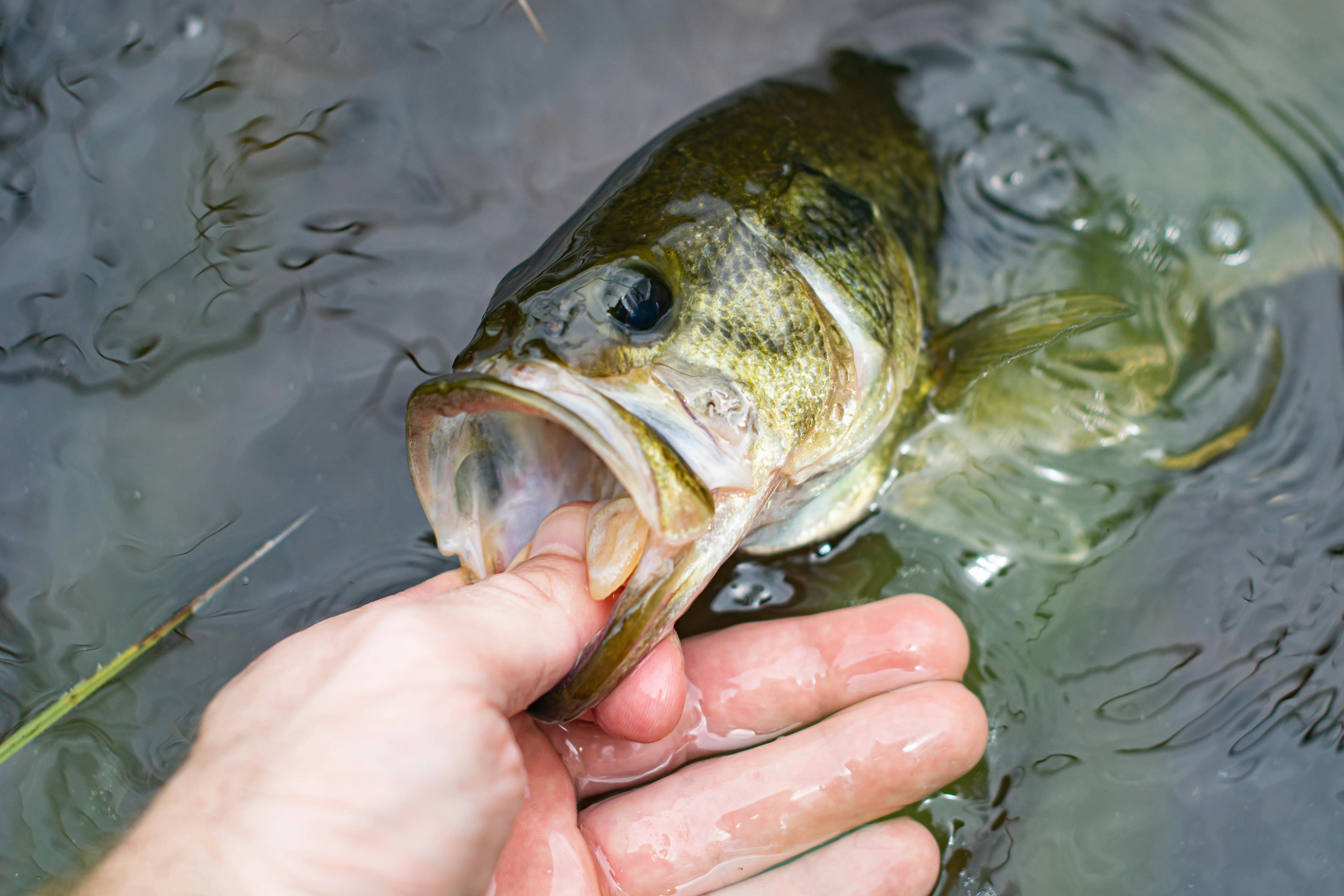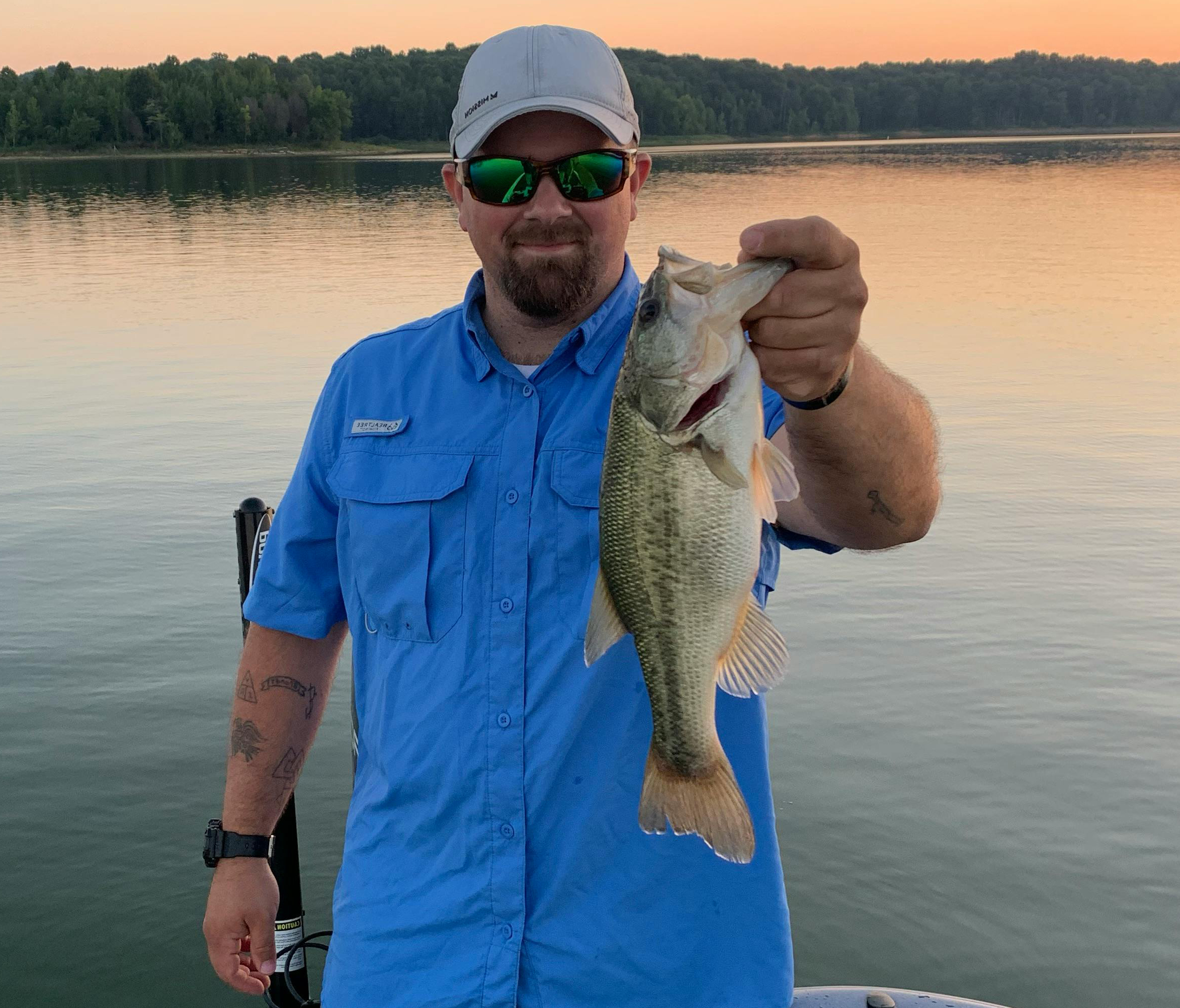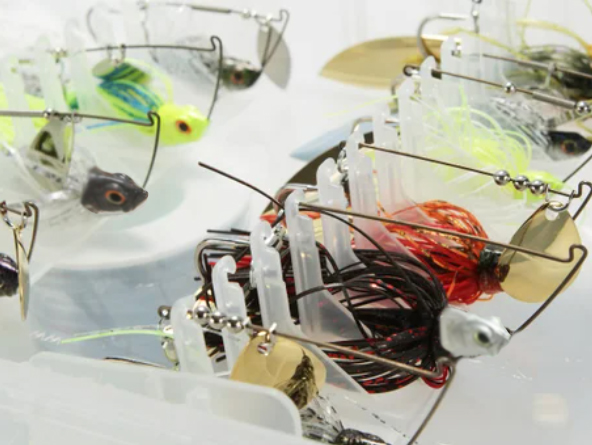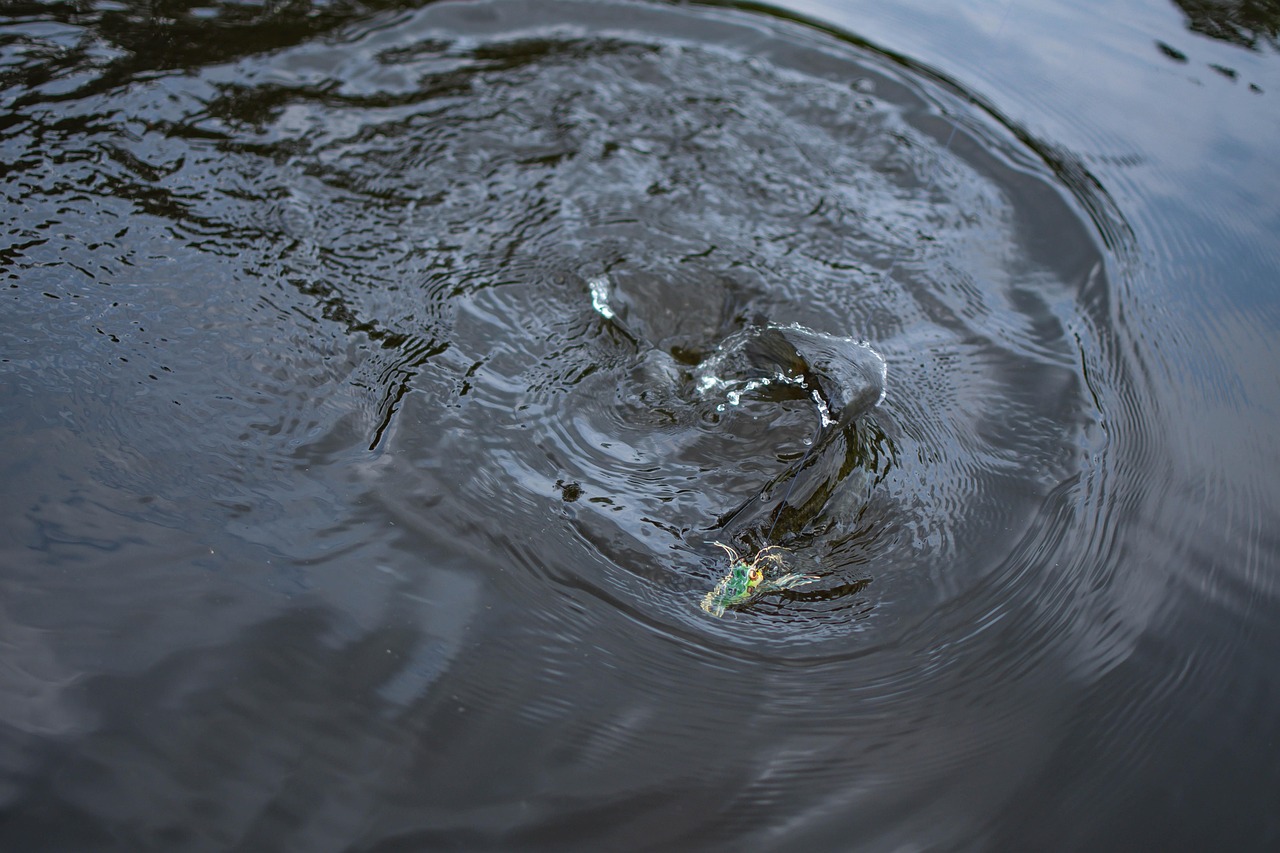There are few moments in fishing that get my heart pounding like a topwater strike. One second, I'm listening to my lure gurgle across the placid surface of Lake Charlevoix during a beautiful Michigan dusk; the next moment the water detonates in a violent splash as a largemouth bass tries to rip the rod from my hands. Of all the ways to trigger this explosion, my absolute favorite (and the most downright fun) is with a buzzbait.

I was introduced to these mechanical "bite machines" by my friend Curt McLoskey of Corunna, Michigan. Years ago, we entered a pike fishing contest on Fletcher Pond in Northern Michigan. We didn't catch many pike -- probably because we were having so much fun with the largemouths!
I'll admit a buzzbait looks like a strange contraption from the bottom of a tackle box - a jumble of wire, lead, silicone, and a propeller blade. For those of us who have put in the time, we know it's a big-bass magnet. It's a tool I use to call fish up from their hideouts and provoke them into doing something reckless. If you're ready to experience the pure adrenaline of topwater bass fishing in the Great Lakes State, let me walk you through the fundamentals of my favorite lure.
So, When and Why the Buzz?
The magic of a buzzbait is its ability to create a maximum commotion with a minimum of fuss. That rotating blade churns the water, creating a gurgling sound and a bubble trail that mimics something trying desperately to escape. A bass simply can't ignore it. It could be a frantic bluegill, a small rodent that fell in, or even a panicked frog. This disturbance taps into a bass's predatory instinct, and often, they'll strike out of pure aggression, even when they aren't actively feeding.
Pro Tip
While I'm often targeting largemouth, these techniques are just as deadly on Michigan's aggressive smallmouth bass.For me, the Michigan buzzbait season truly kicks off when the water temperature consistently climbs above 60°F. I'll keep a buzzbait tied on from late May right through early October.
- Late Spring/Post-Spawn: This is when things get good. As bass move off their beds and recover from the spawn, they get incredibly mean and territorial. Ripping a buzzbait over shallow flats and near those now-empty beds is a fantastic way to get hammered.
- Summer: This is primetime. The low-light hours of dawn and dusk are classic buzzbait windows, and it's where I have my most memorable moments. When the sun gets high, I'll target the shade of docks, lily pads, and fallen trees. But don't put it away on an overcast, breezy day; I've had the bite last all day long under those conditions.
- Early Fall: As the water begins to cool, bass know winter is coming and they feed heavily. They'll push schools of baitfish into the shallows, and a buzzbait is the perfect way to imitate that panicked surface activity.
Gearing Up for the Commotion
You can technically throw a buzzbait on anything, but I learned a long time ago that the right equipment transforms missed strikes into landed fish.
My Rod Choice
I almost exclusively use a casting rod for this, somewhere between 7'0" and 7'4" with a medium-heavy power. That length gives me the casting distance I need to cover water and the backbone to horse a fish out of heavy cover. The real debate is the rod's action.
- Fast Action: A stiff tip gives you instant power for a hookset. The downside, especially if you're new to this, is that it can be too responsive. Your instinct is to set the hook the second you see the splash. With a fast-action rod, I can't tell you how many times I've ripped the lure away from a fish before it even had it. It takes time to learn the right touch.
- Moderate-Fast Action: This is my personal sweet spot for buzzbaits. The slightly softer tip has a bit of "give." It forces me to delay my hookset by a split second, which is just enough time for the bass to get the bait securely. It also acts as a shock absorber during a fight, which means fewer pulled hooks.

The Reel
Don't overthink it, but get a high-speed baitcasting reel. I look for a gear ratio of 7.1:1 or higher. The reason is simple: you need to start that blade turning the instant the lure hits the water. A high-speed reel helps me pick up slack line immediately. It's also a lifesaver when a fish blows up and misses; I can crank that lure in and fire another cast right back to the same spot before the fish knows what happened.
The Line
This is a place to keep it simple. Fluorocarbon sinks, so it's the wrong tool for the job.
- Monofilament (15-20 lb test): This is a fantastic choice, and it's what I started with. It floats, and its natural stretch provides that same forgiveness I talked about with the moderate-fast rod. It's a great safety net against premature hooksets.
- Braided Line (30-50 lb test): This is what I use today. Braid has zero stretch, which gives me incredible hook-setting power to drive that big hook home, especially on a long cast. It also floats and cuts through lily pad stems and weeds like a knife. This helps assure that your $10 lure is coming back to you each time. If you go with braid, I strongly suggest pairing it with that moderate-fast rod to build a little forgiveness back into your system.
Insider Tip
Speaking of line, a good local tackle shop is your best friend. I took one of my spare reels to Frank's Great Outdoors in Linwood, Michigan, and had them spool it with 50 lb braid. For less than the price of a medium pizza, they got it perfectly loaded. Now I've paired that reel with its rod, and the whole combo lives in my truck, just in case I find a nice dock somewhere and have a few minutes to give it a whirl!Not All Buzzbaits are Created Equal
Walk down the tackle aisle and it's easy to get overwhelmed. Let me break down what I look for.
My Workhorses (e.g., Booyah Buzz, Strike King Premier Plus)
These are the classics for a reason. They usually have an aluminum blade that, after a little use, develops a squeak as it turns. I don't try to get rid of the squeak. I believe that high-pitched squeak drives bass nuts. I'll even bend the wire frame a little bit myself to make sure the blade is ticking it just right. Some have a "clacker," a small piece of metal the blade hits. I use these in choppy or stained water when I need more noise. Noise is important. When topwater fishing, stealth is the enemy.
Weight and Blades
I carry 1/4, 3/8, and 1/2 ounce buzzbaits. I use the heavier ones for longer casts and faster retrieves. On days when the fish seem sluggish, I'll switch to a double-bladed model. It provides more lift, so I can reel it painfully slow and keep it on the surface.

The Retrieve, and The Hardest Lesson in Fishing
Where do I throw it? I'm always looking for "edges." The edges of weed lines, the edges of lily pad fields, the shady edges under docks, and all around fallen trees. I make my cast well past my target, and I start reeling the moment it touches down.
My goal is to find the absolute slowest speed I can reel while still keeping that blade churning on top. This keeps the buzzbait in the strike zone for as long as possible. And don't be afraid to bump it into things! Accidentally bouncing it off a dock post or a log is often what triggers the bite.
Now for the most important rule I can give you, and the hardest lesson I ever had to learn: Do not set the hook on the splash. A bass will often swipe at a buzzbait, creating a huge explosion but missing the hook entirely. If you react to what you see, you'll pull the lure away every time. It's hard, but you have to train yourself to wait until you feel the weight of the fish pulling back on your rod. When you feel that "thump" or heavy pressure, that's your cue. Then, instead of a wild jerk, I use a long, sweeping hookset, reeling hard as I pull the rod back.

The Fine Print: Michigan Regulations
In most Michigan waters, anglers can fish for largemouth and smallmouth bass year-round on a catch-and-immediate-release basis. The possession season - when you're allowed to keep bass - runs from the Saturday before Memorial Day through December 31. During that time, you may keep up to five bass per day in any combination (largemouth and/or smallmouth), and each must be at least 14 inches long. I fish largemouth bass for fun and don't remember the last time that I kept one, but that's just me. You do you!
Exceptions apply: For example, on Lake St. Clair, the St. Clair River, and the Detroit River, the possession season starts later (typically around the third Saturday in June). Also, some inland waters in specific counties have more restrictive size or bag limits, or a different possession season (e.g., a July 1 start in some areas).
Always consult the most current Michigan DNR Fishing Guide for specific waterbody regulations and any annual changes.
I still remember the one that truly hooked me. It was on the shore of Grass Lake near Hillman, Michigan. My dad and my brother were out in a canoe, trolling for pike. I stayed back. The morning was so foggy you could barely see the far shoreline and the loons were being very vocal. The buzzbait was squeaking a perfect, annoying rhythm when the water just... disappeared. It wasn't a splash so much as an implosion. I did everything wrong - I jerked instantly, pulled the lure clean out of the water, and my heart hammered against my ribs. The fish was gone. But that image of the water erupting has never left me. That's the deal you make with this lure. It will test your patience and punish your mistakes, but it will also give you moments that replay in your mind for years, whether you land the fish or not.